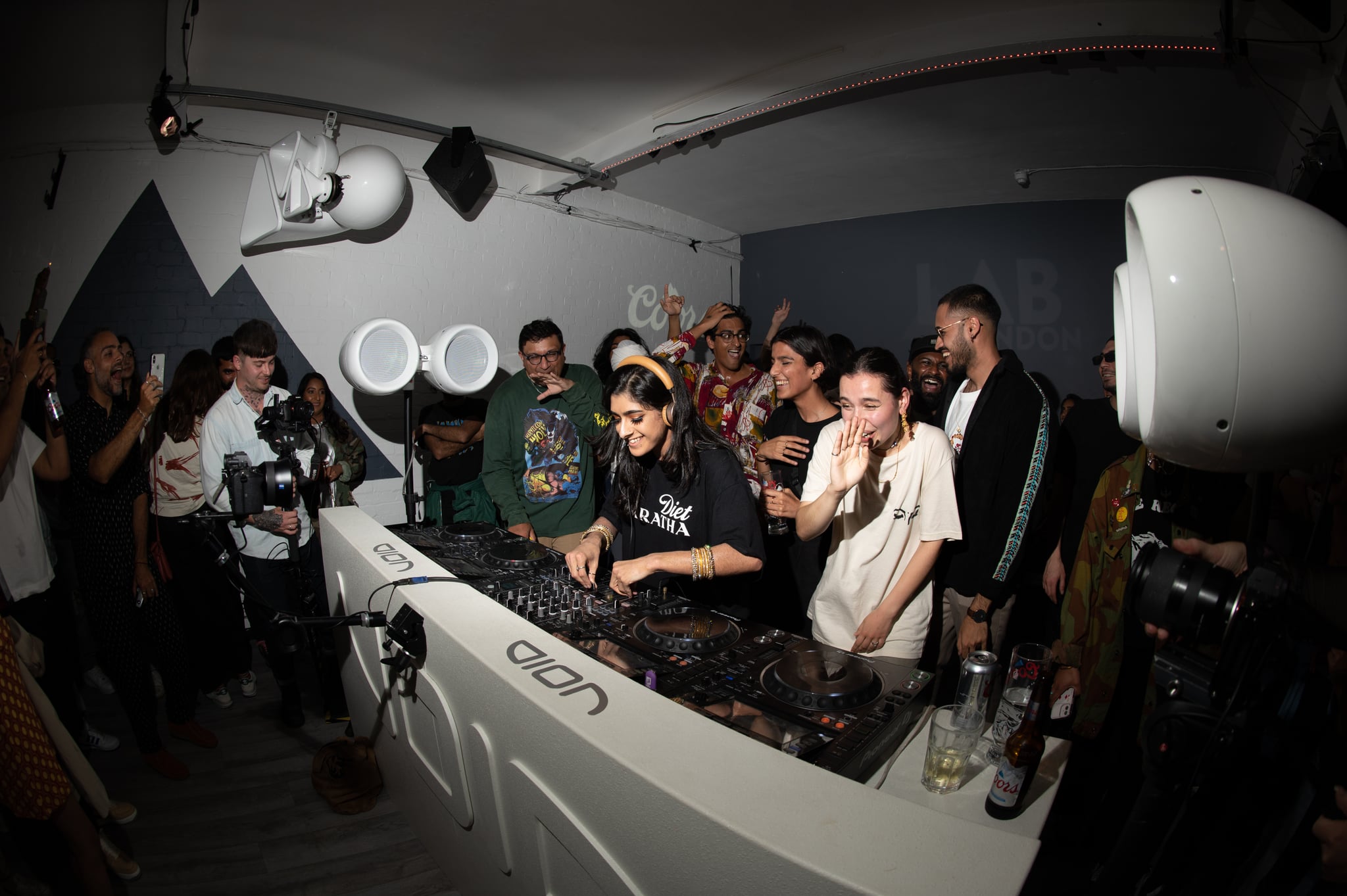 Image Source: Yushy [1]
Image Source: Yushy [1]
For the longest time, Panjabi MC's "Mundiya Tu Bachke Rahi" was the only song representative of the British Asian music scene [2]. A song frequently played at student club nights (primarily by white DJs), I cringed every single time I heard it, trying to hide from non-Asian friends encouraging me to dance. The song became a token part of the night-out playlist, and at times, it felt more like a mockery than a positive representation of my culture. My experience is far from unique though, and it's a common feeling among South Asians in the UK to feel like your culture isn't being accurately portrayed or celebrated. For Daytimers [3], reclaiming that culture underpins everything they do, particularly within the UK music scene.
Initially the name given to the underground Bhangra raves that took place across the UK back in the '80s and '90s, "Daytimers" is now a term that's been revived by a South Asian DJ collective of the same name, founded by Provhat [4]. The collective is known for creating safe spaces, inclusive lineups, and making history at iconic club nights [5], such as Boiler Room. The difference is that the Daytimers of today want more than ever for the music scene to be safe for all, particularly for women and the LGBTQIA+ community. We caught up with the women of the collective to talk about how they got involved, what it means to them to be a part of it, and how they intend to preserve and grow the community.
POPSUGAR: How did you get started with Daytimers?
Samia: I got a message on SoundCloud from Gracie, and she was like, "I love what you are doing. Your selections are so good. Your mixes are on point," which was really sweet. Then she was like, "I'm part of this new collective called Daytimers." They had six followers on Instagram [at the time]. We eventually jumped on a call, there were only six of us, but the excitement from everyone was palpable. You could tell that there was something there.
Sita: The founder, Provhat, dropped me a line about about a creative project he was working on, celebrating the new South Asian underground, putting together a team of incredible artists from the diaspora. Daytimers only had about 100 followers at the time, so initially I was a bit dismissive of [joining the collective]. I'd become completely disconnected from my culture [at the time], but I replied to the DM and I'm so glad I did. The first thing we did together was a takeover on a radio station called Foundation FM [6].
Gracie T: I was also scouted through a message, which came at a time where I was already trying to look for ways to connect with my culture through music. Because I'm mixed race, my dad only has a few family members in the UK. I grew up in a really small town in the North East, and I never really had that deep connection to my culture in the first place. We were the only brown family in the village, so I never really grew up around a community.
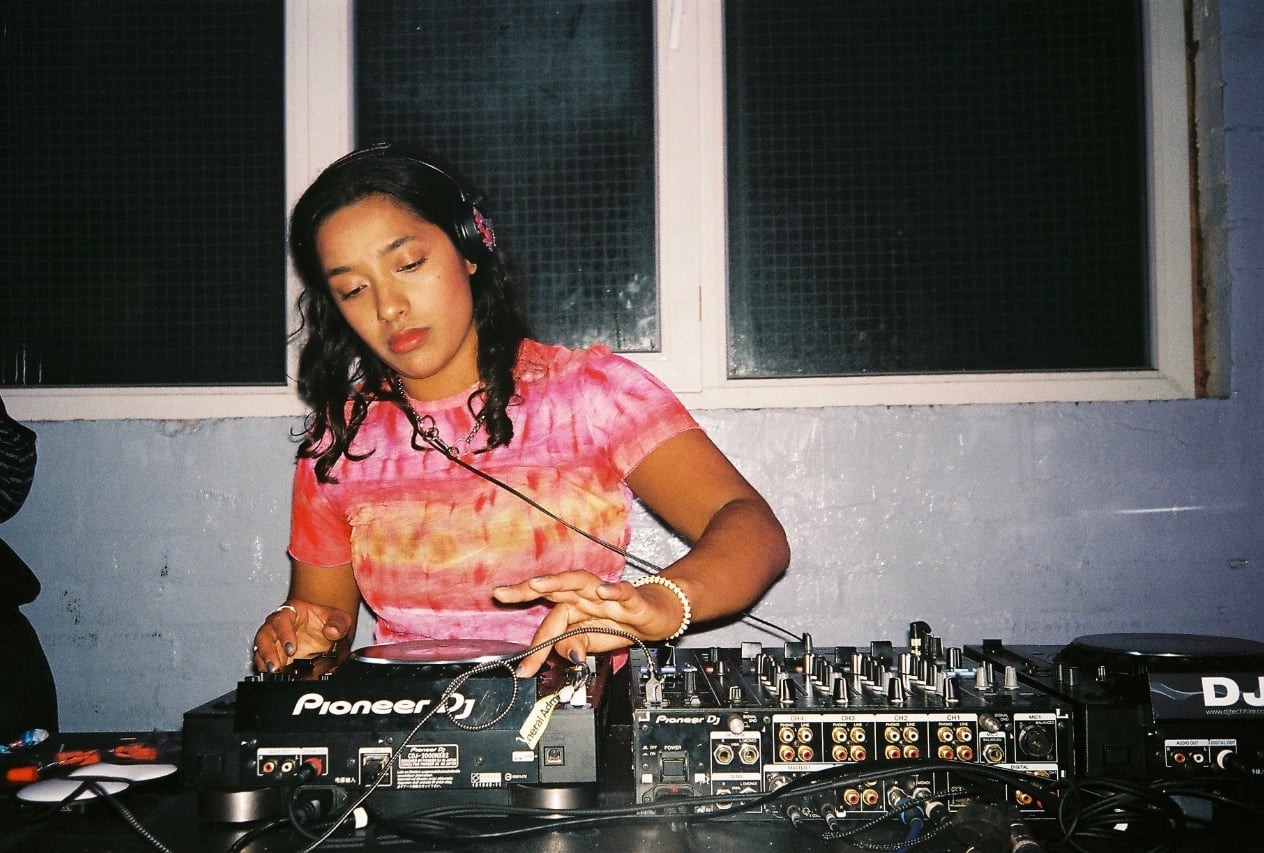
Moorni: I think I'm one of the only people that actually messaged Daytimers first. I was looking for someone to make a collaborative radio show spotlighting South Asian heritage and our music so we could talk about SA diaspora music which is how I met Nirav (Chande DJ [8], also part of Daytimers). I remember finding Punjabi garage really interesting at the time because I felt like I could relate to it in a way as a mixed-race person, because it was an example of East meeting with West in harmony. On reflection, it was probably something I wanted to feel within myself at the time. Nirav and I tried to do a couple of things together to spotlight our community in music but didn't manifest in the way we hoped. He told me about Daytimers so we just channelled all the energy there.
Priya: I did a guest appearance on Foundation FM with Sita, and it was a great show. From that, I remember having my first Daytimers call, and there must have been about 20 people. It wasn't huge, but I just remember thinking, "Oh my God, there's so many brown people here. Not just brown people — brown women as well." I remember seeing Moorni and Gracie and thinking "Please, please be my friends. Can we be friends?"
Riva: I joined Daytimers in March of this year because of the farmers protests happening in India [9]. I really wanted to use music as a way to raise awareness and money for that, and everyone kept pointing me in the direction of Daytimers. With sufficient harassing to Provhat, who's the founder, that's how I joined the collective. I was just focused on that [fundraising] project and got to learn a lot more about it after that happened. On the day of the live-stream event [10], we were all there watching the stream, making sure that there weren't any inappropriate comments, and I was like, "Oh my God, what actually is Daytimers? It's huge."
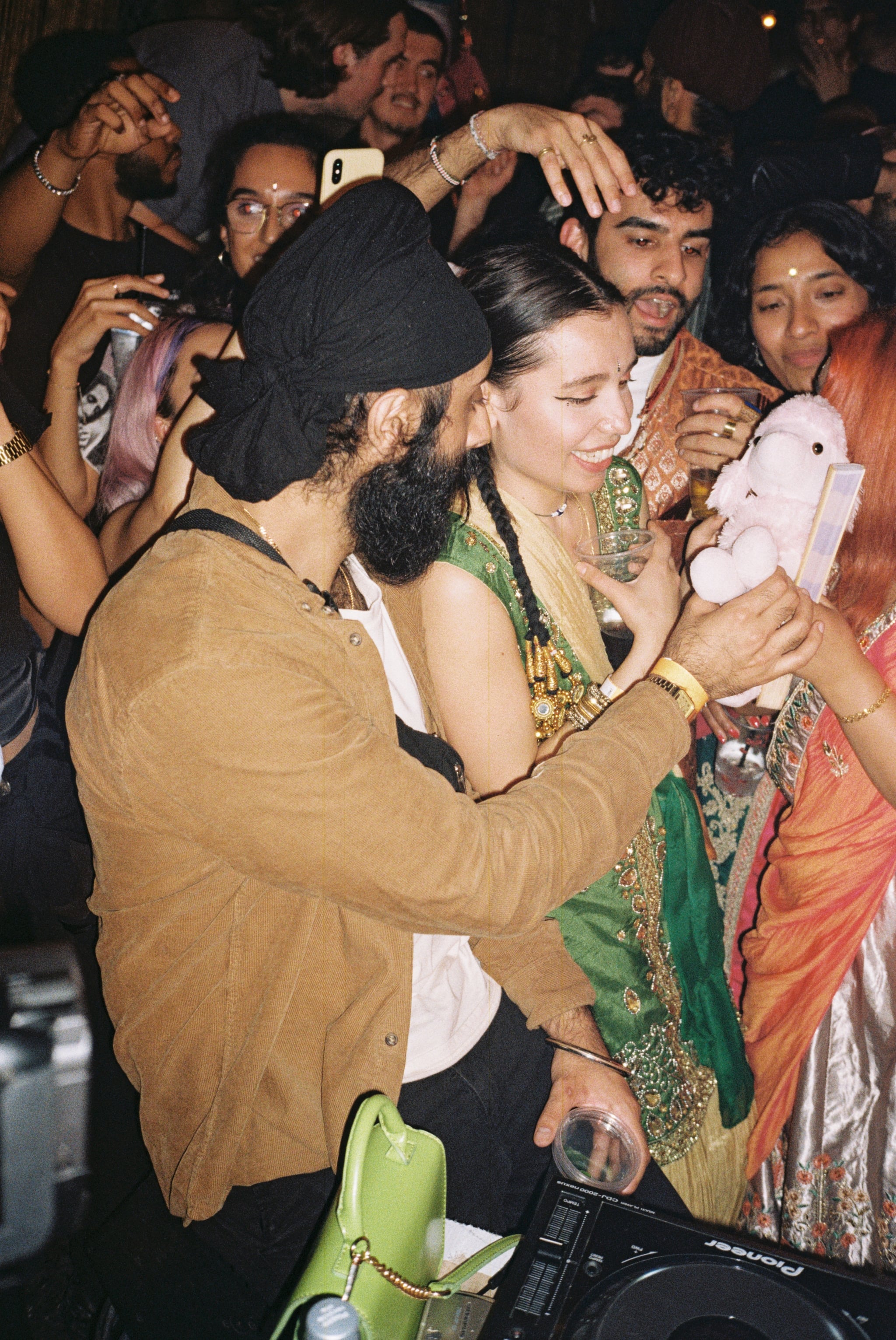 Image Source: Hark1karan [11]
Image Source: Hark1karan [11]
PS: What, in your own words, does Daytimers stand for?
Sita: It stands for reclaiming what it means to be South Asian. For me, it stands for a fusion of cultures, styles, heritages, and it stands for friendliness, family, people uplifting each other and celebrating each other.
Samia: Celebrating those who came before us, like DJ Ritu [12], because it's definitely a movement that lost some momentum. The Asian underground started in the '90s, way before our resurgence, and we were honoured to have someone like DJ Ritu play on our stage at Fabric this month because of that. There hasn't actually been a review of the noughties either, artists that were truly breaking ground like Akash, Anu, Ahadadream, Manara [13], Night Slugs [14]' Asmara, and BBC AZN Network, they're all still killing it. We are championing the now and the artists that are current, and then propagating a future, through mentoring and ensuring that we preserve and are able to flourish this uprising, so it doesn't get stifled. We do that through educational resources, podcasts and community activities.
Moorni: Carving a space for ourselves that's made by our own standards, because mainstream ones aren't good enough for us, and making sure that, within carving our own spaces, we're also protecting each other.
Priya: We are not the first to do this; I'm sure we are not going to be the last, so it's important to remember the Daytimers that came before us, but also try to make it even better for our generation and the next generation by including things like a safe space. Things that might not necessarily have happened in the original spaces.
Riva: A big part of Daytimers is community and doing it on our own terms. Being able to take the two parts of the worlds we grew up in, picking the parts that we like, and leaving behind the bits that are exclusionary or that make it difficult for certain people to exist and challenge norms. Being able to do things on our own terms and working out what the best way forward is for everybody, so that people don't get left behind.
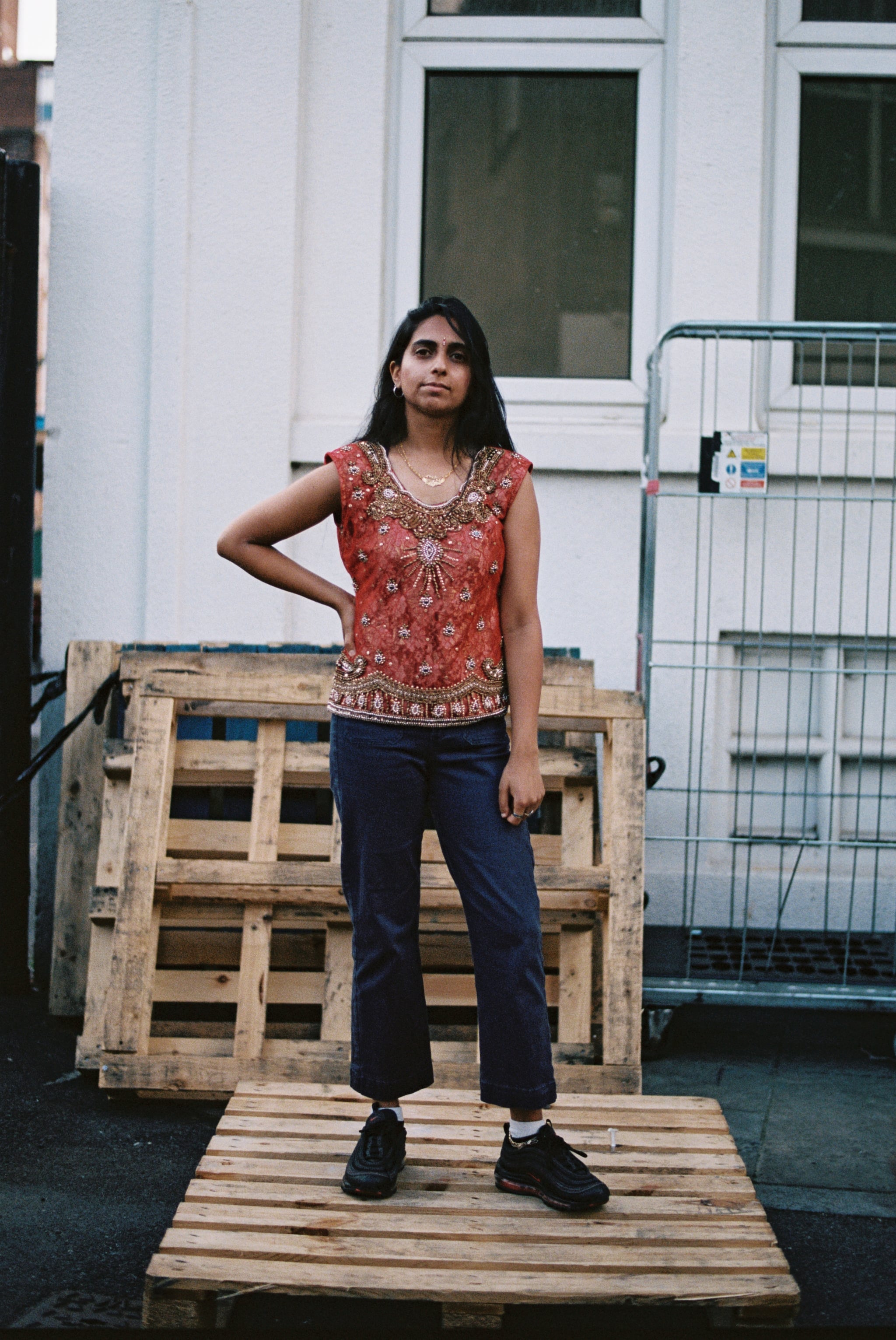
PS: What does being a part of Daytimers mean to you?
Sita: It just feels like this amazing community of people who are uplifting each other. I've been able to connect back to my heritage, find songs that I used to listen to on the way to weddings in my family car, and just really get back in touch with that side [of myself] and realise that it's such an important part of me. It's just made me happier as a person with my own identity.
Gracie T: Meeting up with Daytimers and playing their shows and listening to all the amazing music that people make within the collective has been a way for me to discover my own identity in a way that I maybe didn't really understand before. I've been trying to connect my brownness with my love for music that I've been doing since I was a kid.
Moorni: Provhat accepting me in this community has actually been instrumental for me because I feel very accepted, despite me looking different to the rest of the team. The reason why all the ideas [me and Nirav] had [in the past] never really came into fruition is because our existence was an insecure one. We didn't have our community behind us to support us like we do now, but now in whatever we do or how we feel, or we want to confide in someone or seek some advice from anyone, we know that we've got each other. And I genuinely do believe that's why this is working now.
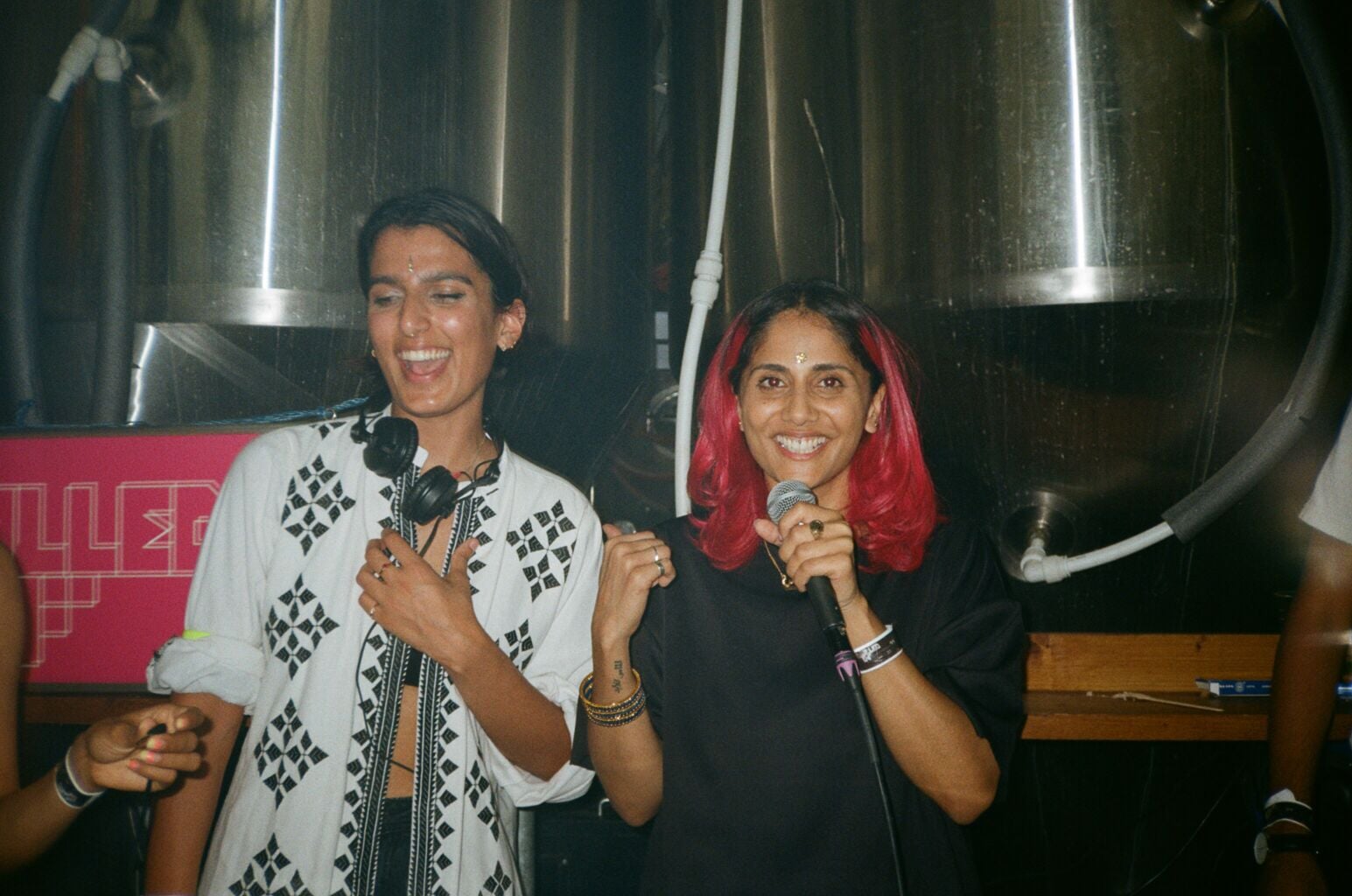 Image Source: Moorni [16]
Image Source: Moorni [16]
PS: What's it like to be a part of a collective, in comparison to when you were each out on your own and trying to navigate the industry yourselves?
Sita: I just didn't know that many South Asian female DJs, or even south Asian people in music or creative industries or the arts existed. Provhat did an amazing job finding these people. Doing things together, it has so much more impact. It feels like we are creating something that is here to last and is more than just a DJ gig.
Gracie T: Daytimers values community, and it does value love — not to be cheesy, but that is how it feels at the events. Even being geographically very far away from each other, we still manage to form such strong, meaningful connections. And even people that I've never met in person before, but hope to one day, I still feel like these people are genuinely my family. And I think there's something quite unique and extremely valuable about that.
Riva: You really realise what it's like being able to have that privilege of being part of the space where you can look at a lineup and challenge it saying, "This is not right. This is not something we can be putting out," and actually being able to have those conversations. In those moments, you realise the privilege of being able to talk to the other people who are organising the events and the people who're putting out the projects and being able to say, "Hey, I want to do a compilation and celebration for pride. I want to do it like this, because this is why I think it will serve the community best with the resources we have." That is something that I think I'll never want to lose, because the alternative actually sucks in most cases. You're lucky if you can find promoters, collectives, artists who are able to maintain that integrity within that thirst for fame and profit.
Samia: I was going to probably give up [before Daytimers]. I felt like "Oh, I've had enough. I've learned how to DJ now." It's really nice to have done it. It's a fun hobby, but I'm not going to do it professionally, because how can I possibly when I don't see people like myself in it?" It's way better to be doing it together than trying to do it alone. I've got more confidence now — I did not have that confidence before. It liberated me.
Priya: Before Daytimers, I was finding it really hard to navigate my way through the music scene. Since being a part of Daytimers, I know that I have a really nice supportive network, I'm not afraid to ask questions anymore. I can go to anybody [in the group] and be like, "Hey, can you discuss fees with me?" Or "I don't feel like I'm being paid enough." It's helped me find my worth, because before this, I was playing shows for free and promoters walked all over me, so it's really helped me grow."
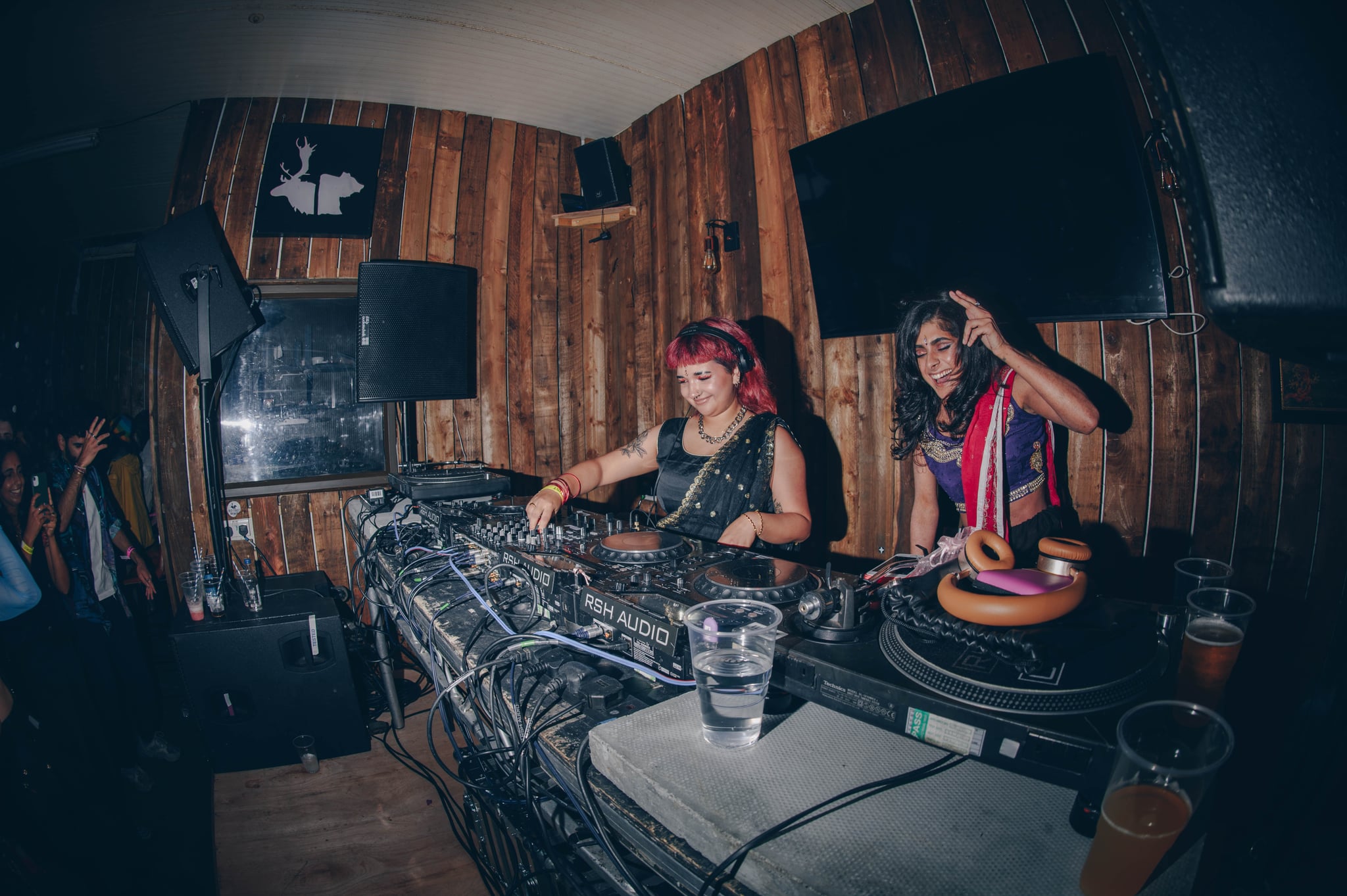 Image Source: Yushy [17]
Image Source: Yushy [17]
PS: What do you think is next for Daytimers, what are the goals?
Samia: We're working on our website at the moment to host all our assets and learning resources. There's also a Daytimers run club in the works and we're finally on the hunt for a space to link up in, outside the digital one we created in 2020.
Riva: The thing in a lot of people's minds is longevity. How do we make sure that this actually is sustainable and we can hold onto the community we're creating and make sure that that keeps going on? A lot of the things that are going to be coming up are going to be with more of that in mind now — we can't keep banging things out left right and centre. It's unsustainable. In the coming year, we'll be more focused on building that community, having workshops, and things that are focused on bringing the rest of the community up, being able to have those nights and those spaces where South Asian people and our allies can show up, have a great time, and feel accepted.